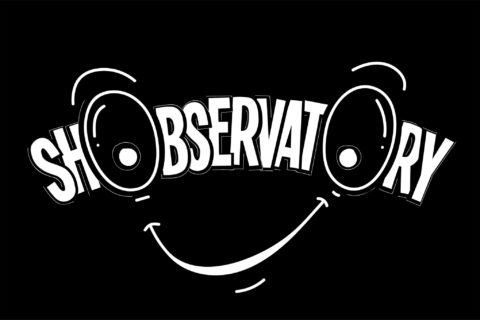We are in a period of renewal and an intense cycle of elections in Latin America with elections in 15 countries in the region between 2017 and 2019.
The elections in Latin America are being held in many countries that share some of the following problems: growing dissatisfaction with the way democracy is functioning, low economic growth, declining trust in institutions and political leaders, and high levels of inequality, corruption and insecurity.
Latinobarómetro, the largest and most prestigious regional poll, shows that in the last 10 years, support for democracy has fallen from 57% to 48%, while satisfaction with how it is performing has declined from 37 % to 24%.
Furthermore, trust in parliaments fell from 32% to 21%, in political parties from 21% to 13% and in the judicial/legal system from 28% to 24%. We can also see an increasing general perception that corruption is growing (65%) and that inequality in the region is very high, with striking differences between rich and poor and restricted upward social mobility.
Elections in Argentina
Examining the situation in Argentina before the Presidential and Vice-presidential election on 27 October when half of the Chamber of Deputies and a third of the Senate would be replaced, we find a number of local polls and also research done by Pew Research Centre that describe the situation well.
Pew’s study is based on a national representative sample of the adult population with 1,035 personal in-home interviews performed between May and July 2019: this survey shows that Argentinians cast their votes on 27 October in a mood of wide discontent with the way things are going in the country and a lack of faith in public officials and institutions.
Some of the findings were summarised in a paper published by Christine Tamir on 23 October showing that there was a widespread pessimism among the public about the nation’s directions with 8 out of 10 Argentinians expressing dissatisfaction with the way things are going in the country, and a similar proportion stating that Argentina’s economic situation is bad.
Discontent extends across a wide range of subjects such as the way the political system works (72%), differences between rich and poor (52%), the education system (52%) and availability of good jobs (51%). Also the Confidence in Government index conducted by San Andres University showed a general decline in all sub-indexes in September, just before the election.
The population in Argentina is highly polarised, favouring two main contenders: the Peronist Party “Frente de Todos” and the ruling party “Juntos por el Cambio”, the latter headed by the current President who is running for re-election. There are four more parties/coalitions also running but with a very low proportion of voters.
In the August primaries, results were surprising for many with an unexpectedly large difference between the two main parties. Frente de Todos with Alberto Fernández and Cristina Kirchner running for President and Vice President obtained 48% of the votes and Juntos por el Cambio with Mauricio Macri and Miguel Pichetto got 32%. Most published polls showed the Peronist Party winning in the primaries but by a much smaller difference.
In Argentina, the Constitution establishes that a President assumes office when his formula has obtained more than 45% of the positive votes or at least 40% of the votes and a percentage difference greater than 10 points with respect to the formula that follows in number of votes. If none of these conditions are met, a second round must be held within 30 days of the last election. The two most voted presidential tickets in the first instance participate in the second round, and the one that obtains the greatest number of valid affirmative votes is elected.
The polls
There is a governing body that controls the conduct of opinion polls. The National Electoral Chamber’s created by law a Surveys and Opinion Polls Registry and companies that wish to publish opinion polls during the election campaign must register to do so. During the electoral campaign, and for each project conducted, companies must submit a report where they identify the work done and provide information on who commissioned the project, technical details on the scientific methodology used, the type, size and characteristics of the sample, the procedure for the selection of interviewees, the applicable statistical error and the date of fieldwork. The reports are published on the official National Electoral Justice website to be publicly available for citizens.
It is worth noting that the law also states that from eight days before each election until three hours after the election has closed, the publishing of polls and any comment of their results by any media are prohibited.
Election provisional results from the National Electoral Chamber on 27 October in Argentina showed a victory for Alberto Fernández/Cristina Kirchner (Frente de Todos) with 48% of the votes followed by Mauricio Macri/Miguel Pichetto (Juntos por el Cambio) with 40%.
All the polls showed Alberto Fernández and Cristina Kirchner clearly winning the election and most with a final percentage of votes for them within or slightly above the margin of error. Yet, surveys misrepresented the amount of votes that Juntos por el Cambio (Macri/Pichetto) would obtain: they got 40%, while polls were showing they would win between 33% and 35%. Detailed results of several published polls can be seen in Clarín, the main newspaper on 18 October.
There are several meetings organised by universities and academic centers in the country where pollsters get together to analyse, discuss, evaluate and exchange on voting results since the elections. At WAPOR’s next annual Conference and the WAPOR LATAM Congress in Salamanca in October 2020 we will have special panels on electoral campaigns, social networks and voting in Latin America and globally where pollsters and academics will discuss their findings in times were predicting is becoming more difficult.
We would like to highlight that according to the last WAPOR/ESOMAR report 2017 on Freedom to Publish Polls, Latin America is the region with the highest level of reporting restrictions. Embargoes and the banning of polls make it very difficult for pollsters to predict since there can be last hour changes in voting intentions. In Argentina we have an embargo of eight days and in Chile it is 15 days. This also affects democracy because citizens are excluded from information that a privileged minority can access. It is our duty to fight against restrictions and ban of polls so that all citizens are entitled to the same information when they vote.


